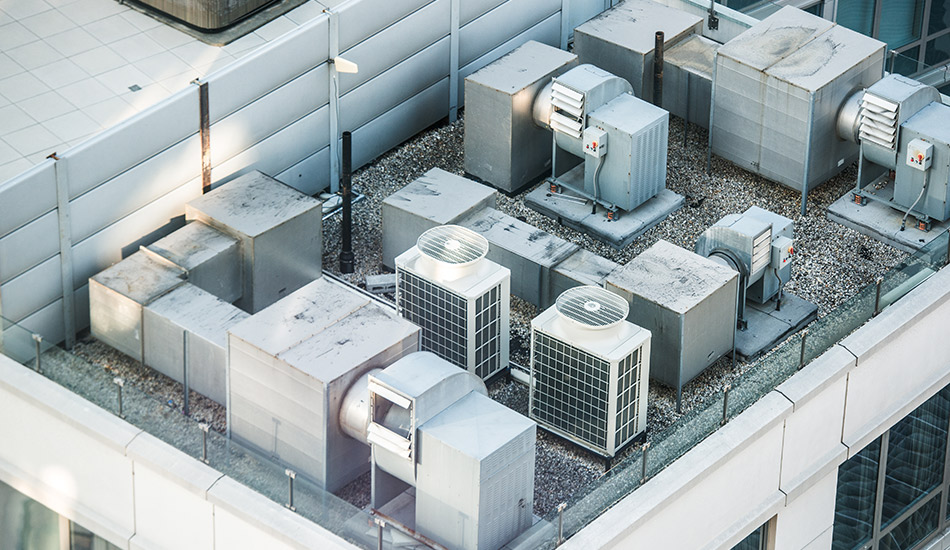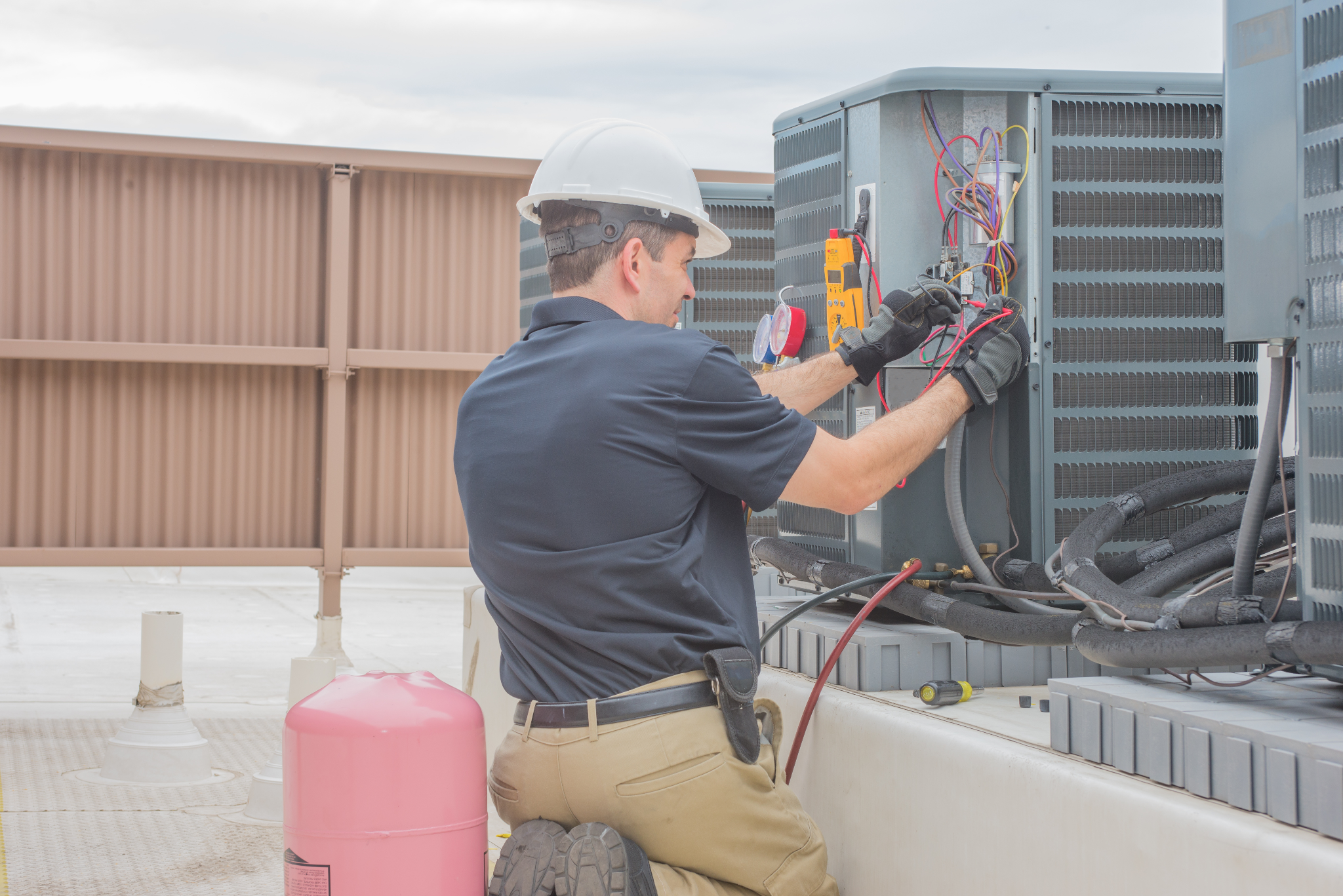Common Errors During heat pump replacement ooltewah tn
Common Errors During heat pump replacement ooltewah tn
Blog Article
Choosing In Between a Heat Pump and Furnace: Trick Considerations for Your A/c Requirements
When examining heating options for HVAC requires, the choice between a heat pump and a heater can be complicated. Each system uses distinctive benefits tailored to specific environments and power effectiveness goals. Recognizing these distinctions is essential for making an enlightened option. Trick aspects such as setup costs and ecological effect even more complicate the selection procedure. Which choice absolutely aligns with one's convenience and sustainability preferences? The complying with sections will explore these considerations carefully.
Comprehending Heat Pumps: How They Function and Their Benefits
While lots of house owners think about different home heating choices, understanding exactly how heat pumps feature and their advantages can substantially affect their decision. Warm pumps run by moving heat instead of generating it. In the winter months, they draw out warmth from the outdoors air or ground and transfer it indoors, while in the summertime, they reverse this procedure, cooling the home by getting rid of warmth outside. This twin functionality makes them flexible for year-round environment control.One of the main advantages of heatpump is their energy effectiveness. They utilize substantially much less power compared to standard home heating systems, possibly causing lower energy bills (heat pump replacement ooltewah tn). Additionally, warm pumps have a smaller sized carbon impact, making them an eco-friendly option. They additionally call for less upkeep than standard systems, adding to lasting price financial savings. On the whole, recognizing the mechanics and benefits of heatpump can assist house owners make educated decisions regarding their heating and cooling down demands
Exploring Furnaces: Types, Operation, and Advantages
Heating systems are available in various types, consisting of gas, electric, and oil designs, each with distinct operational systems. Recognizing these differences is crucial, as they impact efficiency and home heating efficiency. In addition, furnaces provide various benefits, such as constant heat outcome and dependability in colder climates.
Kinds of Furnaces
Heating unit can vary substantially in design and procedure, with heaters being a popular option among property owners. There are several kinds of heating systems, each utilizing different gas sources and technologies. Gas heating systems are typical, leveraging natural gas to produce heat effectively. Electric heating systems, on the other hand, make use of electric resistance to generate heat, often preferred for their simple installment. Oil heaters, while less common, are efficient in locations with limited gas gain access to (furnace replacement). Furthermore, condensing furnaces make the most of energy performance by catching and recycling exhaust gases. Each kind runs via a system of heat exchangers and ductwork to disperse cozy air throughout a home. Recognizing the differences in between these furnace types is vital for notified a/c decisions
Benefits of Furnaces
For property owners seeking trustworthy warmth throughout cool months, the advantages of heating systems are significant. Heaters provide constant home heating, ensuring also temperatures throughout the home. They are specifically efficient in extreme cool, typically outperforming heat pumps in frigid conditions. Different kinds, consisting of gas, electrical, and oil heating systems, provide flexibility to fulfill varied requirements and preferences.Furnaces also have a tendency to have lower initial installment expenses contrasted to warm pumps, making them a more available alternative for several. Their durable layout contributes to a longer lifespan, with lots of units lasting over 15 years with proper upkeep. Furthermore, modern-day furnaces are commonly outfitted with innovative technology for enhanced effectiveness, which can cause decreased energy bills. In general, furnaces continue to be a reputable selection for efficient home heating.

Power Efficiency: Comparing Heat Pumps and Furnaces
When comparing power effectiveness in between warm pumps and heaters, the Seasonal Energy Efficiency Ratio (SEER) plays an important role in identifying performance. Furthermore, an operational expense evaluation reveals the long-term monetary ramifications of each system. Comprehending these factors can assist house owners in making informed decisions about their heating services.
Seasonal Energy Effectiveness Proportion
Power performance plays a vital function in the decision-making process in between warm pumps and heating systems, particularly when thinking about the Seasonal Energy Effectiveness Ratio (SEER) This statistics actions the cooling effectiveness of warmth pumps over a whole air conditioning season, giving a standard means to examine performance. Greater SEER rankings show greater energy effectiveness, equating to lower energy consumption and lowered energy costs. In contrast, heaters are typically examined using the Yearly Fuel Utilization Effectiveness (AFUE) rating, which reflects home heating effectiveness. When comparing these 2 systems, home owners need to prioritize SEER ratings for heatpump, as they directly impact general energy financial savings and ecological sustainability. A complete understanding of SEER can notably influence the long-term contentment and cost-effectiveness of the selected HVAC remedy.
Functional Cost Evaluation
Recognizing the functional expenses related to heatpump and furnaces is crucial for property owners evaluating their options. Heat pumps generally supply greater power effectiveness, transforming electric energy into warm with very little waste. This leads to lower monthly utility expenses, specifically in moderate climates. Alternatively, standard heating systems, specifically gas versions, might have reduced upfront costs yet can sustain higher operational expenditures in time because of fuel costs and performance ratings.Moreover, warmth pumps can function as both home heating and cooling systems, possibly lowering the demand for different cooling and heating systems. While first investments for heatpump may be greater, their long-term savings in energy effectiveness can make them an extra affordable selection for many homes. Mindful analysis of regional energy prices is necessary to establish the very best alternative.
Installation Costs: What to Anticipate for each and every Heating Unit
Installment prices for home heating systems can vary significantly in between heatpump and heaters, influencing homeowners' decisions. Warmth pumps usually have higher in advance setup expenses, generally ranging from $3,500 to $8,000, relying on the device dimension and complexity of installation. This includes the exterior device, indoor handling system, and needed ductwork adjustments. Alternatively, furnaces have a tendency to have reduced initial costs, averaging in between $2,500 and $6,000, which can be appealing for budget-conscious homeowners. Installation costs can boost if comprehensive ductwork is required.Moreover, the choice of fuel type for heaters-- natural gas, gas, or electric-- can also influence installation prices. While warm pumps provide power efficiency, their first financial investment may prevent some customers. Inevitably, examining setup costs together with long-term financial savings and performance will aid property owners in making notified decisions concerning their heating unit.
Environment Considerations: Which System Performs Better in Your Area
Just how do environment problems influence the efficiency of heating systems? The performance of heatpump and heating systems can differ considerably depending on the regional environment. In moderate environments, heat pumps excel by successfully transferring warmth from the outside air, making them an energy-saving alternative. Nevertheless, their performance diminishes in very cool temperature levels, where they may battle to draw out sufficient warm. Conversely, heating systems, especially gas models, offer dependable and constant warmth no matter outdoor problems, making them better in cooler regions.In locations that experience milder wintertimes, warmth pumps can run effectively year-round, offering both home heating and air conditioning. In comparison, regions with extreme winter seasons usually gain from the toughness of heating systems. Inevitably, recognizing the local climate is important when choosing between a warmth pump and a heater, as it straight affects their functional effectiveness and general efficiency.
Maintenance Demands: Long-Term Look After Heat Pumps vs. Furnaces
While both warmth pumps and heaters require routine maintenance to guarantee peak efficiency, their certain needs and care regimens differ substantially. Heaters generally require less constant interest, with yearly assessments sufficing to look for gas leaks, clean filters, and assess general performance. Their simpler design typically enables simple repairs.In contrast, heatpump demand semiannual upkeep as a result of their dual duty in cooling and heating. This includes cleaning coils, examining cooling agent levels, and making sure that both the outdoor and interior devices function at their ideal. Furthermore, warmth pump maintenance usually includes more complex elements, making professional servicing essential.Neglecting maintenance can bring about reduced performance and enhanced power costs for both systems. Inevitably, property owners need to take into consideration these long-lasting care needs when picking between a warm pump and a heating system, as positive upkeep can prolong the life-span and performance of either system substantially.
Environmental Effect: Picking a Lasting Heating Choice
The environmental effect of furnace is an from this source essential examination for homeowners looking for sustainable choices. Heatpump are usually much more energy-efficient than standard heating systems, as they move warm as opposed to create it, substantially reducing carbon emissions. By using renewable resource sources, such Going Here as air-source or geothermal heatpump, house owners can additionally reduce their environmental footprint.On the various other hand, natural gas heaters send out greenhouse gases and add to air contamination, though they usually provide greater warm outcome. Innovations in innovation have led to the development of high-efficiency furnaces that minimize emissions.Ultimately, picking a home heating system involves weighing effectiveness against ecological effect. Property owners are encouraged to review local energy resources and incentives for eco-friendly systems, making sure an option that straightens with both personal convenience and ecological responsibility. The choice impacts not just prompt convenience however additionally long-lasting sustainability and ecological health and wellness.
Regularly Asked Inquiries
How Lengthy Do Warm Pumps and Furnaces Commonly Last?
The life-span of warm pumps generally varies from 15 to two decades, while heaters can last between 15 to 30 years. Normal upkeep considerably influences their durability and effectiveness in supplying home heating services.
Can I Make Use Of a Heatpump in Exceptionally Cold Climates?
Heatpump can run in extremely chilly climates, but their effectiveness lessens as temperature levels drop. In such conditions, supplementary home heating sources may be needed to keep comfy indoor temperatures and ensure peak performance.

What Is the Noise Level of Warmth Pumps Versus Furnaces?
The sound levels of heatpump and heaters vary substantially. Typically, warmth pumps run even more silently than traditional furnaces, making them better for those delicate to sound, while furnaces may create louder operational noises during home heating cycles.
Are Heat Pumps Suitable for Both Home Heating and Air conditioning?
Heatpump are undoubtedly suitable for both heating & cooling (heat pump service). They operate by transferring warm, supplying effective temperature level control year-round, making them a flexible selection for home owners seeking an all-in-one HVAC remedy
What Dimension Heating System Do I Required for My Home?
Determining the suitable dimension heating unit for a home needs examining factors such as square video, insulation quality, regional environment, and the home's layout. Consulting an expert can assure an exact evaluation and excellent comfort. Warm pumps usually provide greater power efficiency, transforming electric energy right into warmth with very little waste. In modest environments, heat pumps excel by successfully transferring heat from the outside air, making them an energy-saving alternative. Alternatively, furnaces, especially gas versions, provide trusted and consistent warmth no matter of exterior conditions, official website making them more effective in cooler regions.In locations that experience milder winters, warmth pumps can operate efficiently year-round, offering both heating and cooling. Warmth pumps are usually more energy-efficient than typical furnaces, as they move heat rather than generate it, significantly decreasing carbon discharges. By making use of renewable energy resources, such as air-source or geothermal heat pumps, home owners can even more minimize their eco-friendly footprint.On the various other hand, all-natural gas heating systems send out greenhouse gases and contribute to air pollution, though they typically offer higher warm outcome.
Report this page